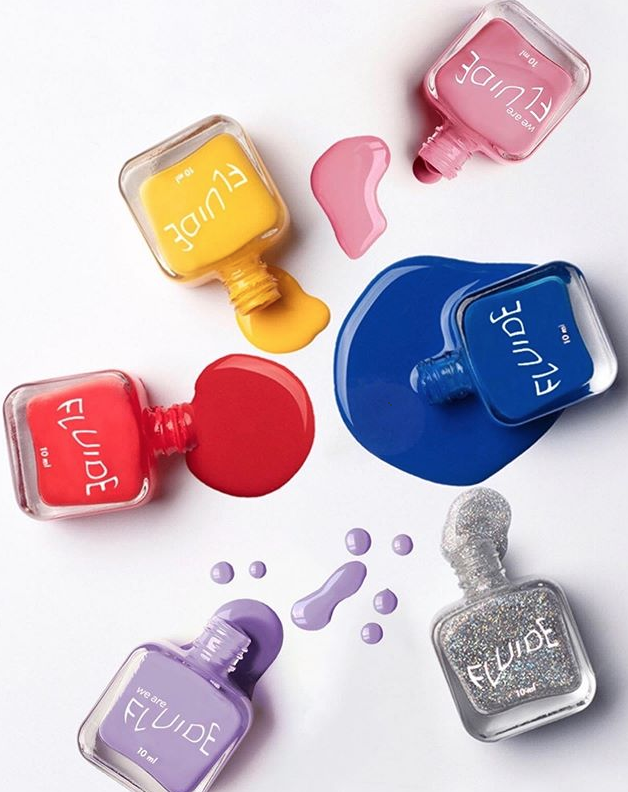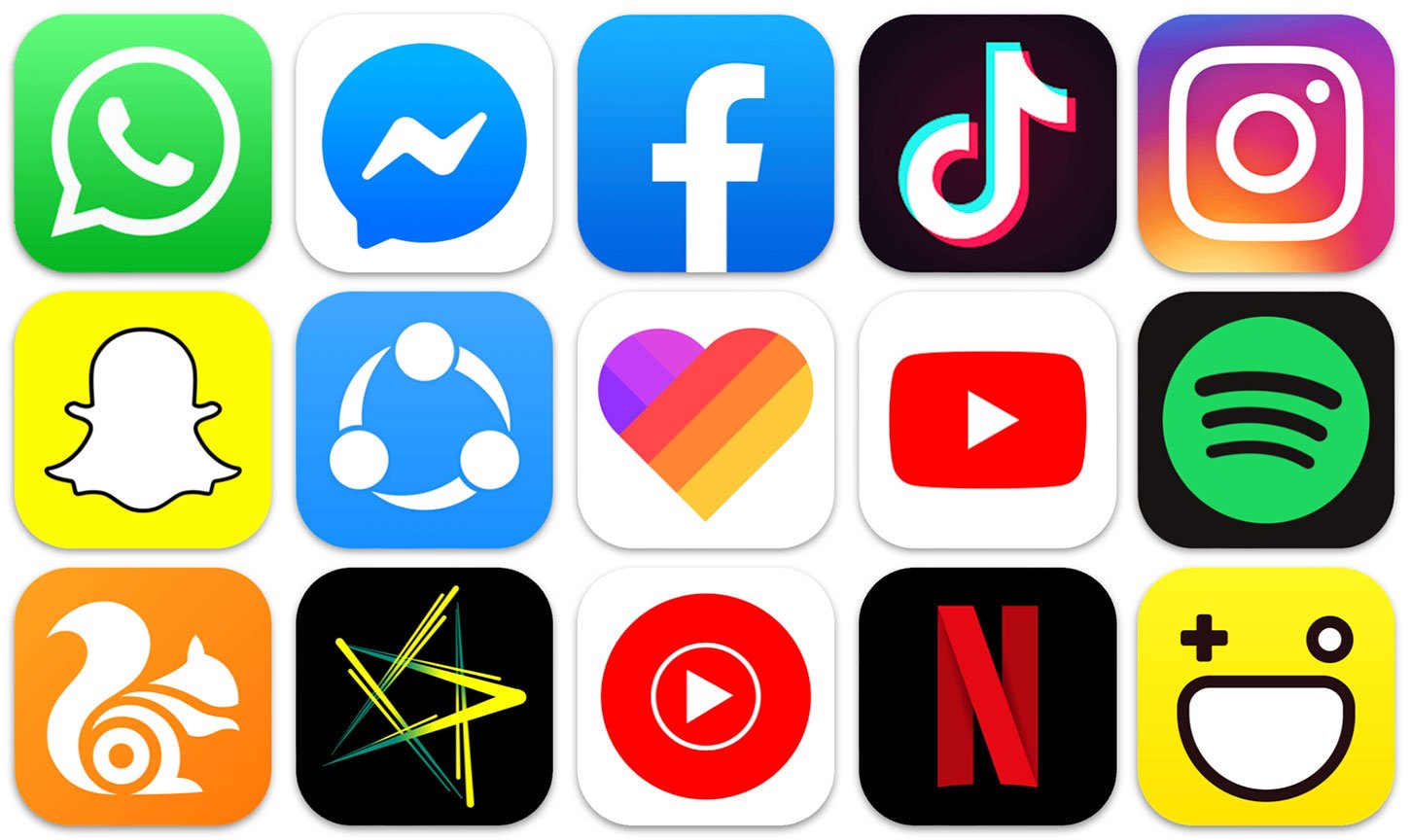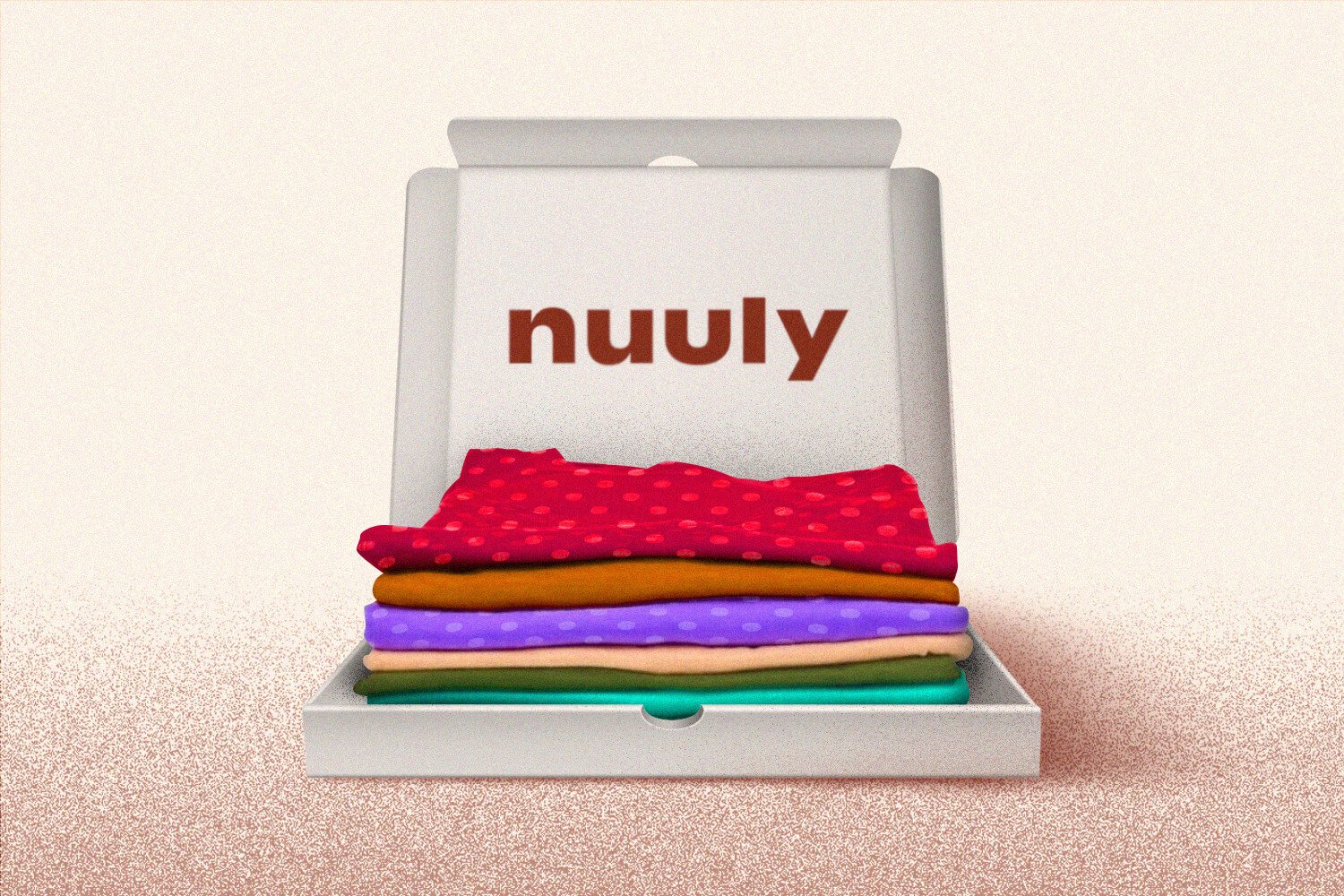Written by
Michelle McGuire & Jenn Morrissey
Every time you blink, something changes in the world of business and branding. It’s especially true of this moment in history: as a society in flux breaks from the norms of the past, brands are stepping in to comfort, heal, and make a statement on how they’ll fit into the future that lies ahead. Spy10 is here to capture all the moments you missed, and explore the ones that might mean something big to your brand.. because right now, you could be the next innovator the world needs.
Gen Z is making history. Born after 1996, Gen Z makes up a quarter of the US population. Gen Zers are more racially and ethnically diverse than any previous generation, and they’re on track to be the most-well educated generation yet. They’re digital natives with little to no memory of a world without internet or smartphones. As Gen Z continues to come of age, it’s increasingly important for brands to understand who they are, what they value, and what they’re expecting from brands. This special edition of Spy10 explores Gen Z and translates insights into actionable takeaways for you to consider.

Introducing Gen Z:
1) Gen Z is radically inclusive
Gen Z is the most fluid generation in history. Where previous generations were proud to fit into labeled boxes, Gen Z wants to create their own. And even when they find what feels true to them now, it is open for revision later as they continue to explore. This fluidity is especially true in how Gen Z sees their personal brand, gender, and sexuality. 60% of Gen Zers believe forms that ask about gender should include options beyond “man” and “woman” and 35% of Gen Z knows someone who uses a gender neutral pronoun. As a result Gen Zers are looking at brands with visibility and representation in mind and expecting to see all genders, abilities, sexualities, and body types included.
Inspiration
Gender-neutral beauty brand Fluide has broken traditional beauty standards by valuing nonconformity over conformity. The brand is owned and operated by the LGBTQIA community, serves the LGBTQIA community, and works exclusively with LGBTQIA talent. Members of Gen Z who have felt previously ostracized and misrepresented are flocking to Fluide over traditional beauty brands.
Takeaway
Gen Z'ers reject brands who seem traditional or exclusive in favor of brands who cater to a full spectrum of identities. Audit your brand to assess where you might be excluding potential identities and where you have the opportunity to better represent all facets of Gen Z in your brand.

2) Gen Z values self-expression over fitting in
Gen Z'ers look at consumption as a means of self expression as opposed to buying brands to fit in. Whereas previous generations seek status with brand names with a “look at me wearing this brand item” mentality, Gen Z'ers are looking for brands that show they’re unique and different. The Business of Fashion-McKinsey Global Fashion 2018 Survey identified personalization as the number one trend among young people and this trend shows no sign of slowing down. This quest for personalization is redefining luxury as Gen Z'ers are more willing to pay a premium for products that highlight their individual identities as opposed to traditional luxury brands that project status.
Inspiration
Luxury brand Balmain hosted a London pop-up in Selfridges which highlighted the fashion brand’s incorporation of both streetwear and personalization. Customers could purchase the latest Balmain sneakers, uniquely customized by on-site artists. A Selfridges buyer explained that the pop-up was centered on Gen Z’s desire for one of a kind products that cultivate their own personal style versus following trends.
Takeaway
Gen Z wants to see their opinions and preferences reflected in brands. Brainstorm ways to source ideas from Gen Z and customize products and services based on what they like. This will help Gen Z'ers feel connected, heard, and part of a brand that understands their uniqueness.
3) Gen Z is hungry for change
Gen Z is incredibly politically active and socially engaged. In fact, 75% of Gen Z believe those two things are key to their identity. They care deeply about issues like poverty, the environment, and equality. Gen Zers believe they can create real change with 62% agreeing they have the potential to impact the world. One way they’re impacting the world is by using their collective purchasing power to make a statement. More than 75% of Gen Z have purchased or would consider purchasing a product from a brand to show their support for the issue the brand supports.
Inspiration
Cause-oriented merchandise is booming as Gen Z is eager to show what they stand for. American Eagle partnered with HeadCount to launch a capsule collection of tees to promote the importance of voting, with all profits going back to HeadCount. Former First Lady Michelle Obama also debuted an American Eagle line urging people to register to vote through her organization Where We All Vote. Her line is gender-neutral and features items from Black-owned and female-owned companies.
Takeaway
Gen Z has a vision for the future and wants to play a role in making it a reality. Get up close and personal with Gen Z by engaging them through research, panel discussions, and social listening. Use this learning to see what aspects of your brand values and story you should draw out when communicating with them.

4) Gen Z values sustainable consumption
With every generation the quest for sustainability strengthens. Sustainability consistently tops Gen Z’s list of greatest concerns with over 40% saying it is the most important issue facing the world. This translates into how they’re interacting with brands with 62% of Gen Z preferring to buy from sustainable brands and 54% are willing to spend an incremental 10% or more on sustainable products. Gen Z’s desire to minimize their environmental impact is causing a surge in peer-to-peer marketplaces, resale and consignment, and upcycling. As a result, bands are learning the value of leading with sustainability. 50% of sales growth among CPG between 2013 and 2018 came from sustainability-marketed products and clothing brands like Everlane and Boden are touting how they bake sustainability into everything they do.
Inspiration
The popular clothing brand Reformation orients everything around sustainability. They lead with transparency and break down their sustainability framework, their impact on the environment, and their specific beliefs around environmental issues like water and carbon. These beliefs permeate into every aspect of their company like their messaging and product drops based directly on consumer demand.
Takeaway
Surface level sustainability claims aren’t enough for Gen Z. Gen Z wants to know everything about how your company is positively impacting the environment and how it connects to your mission. Consider telling your brand’s sustainability story, highlighting why sustainability is important to you and the actions you’re taking as a result.
5) Gen Z’s mental health is struggling
Mental health is Gen Z’s most important health and wellness concern. Over a quarter of Gen Zers characterize their mental health as fair or poor compared to 15% of millennials and 13% of Gen Xers. This poor mental health is rooted in stress as 83% of Gen Z adults characterize their lives as extremely stressful as they worry about finances, socialization, employment, and education. This downward trend is unfortunately increasing as a third of Gen Z reports that their mental health has declined in 2020.
Inspiration
JanSport, a backpack and apparel brand, promoted the mental health of young adults and teens through its #LightenTheLoad campaign. This campaign included weekly sessions on Instagram Live to observe Mental Health Awareness Month. Conversations included the pandemic, racism, and the pandemic. In addition to its social series, JanSport created a film series about mental health issues covering depression and anxiety, family conflict, personal identity, and how to talk about mental health. JanSport reports that this campaign has seen “unprecedented” engagement between the brand and Gen Z.
Takeaway
When it comes to mental health, Gen Z is looking for extra support. In addition to having a voice and speaking up, think about potential brand partnerships and how your current products and services might be able to play a more active role in supporting Gen Z’s mental health struggles.

6) Gen Z is digitally creative
Having grown up with social media and digital creative tools at their fingertips, Gen Z is the most digitally creative generation to date. Over half of Gen Z feel that they are more creative than previous generations and 56% of Gen Zers use social apps to express themselves creatively. They’re defining a new era of creative communication with a digital toolkit that includes selfies, AR, lip syncing, filters, emojis, video, and sound. Authenticity plays a key role in Gen Z’s digital creative expression as a fifth of Gen Z strongly agree that their social accounts represent the real, everyday version of who they are.
Inspiration
Hollister collaborated with AwesomenessTV and top Gen Z influencers to create a 12 episode original YouTube series. The “Carpe Life” digital series celebrates “the spirit of endless summer” and was filmed with “no plan and no script.” The series includes influencers participating in different fun summer challenges like dance offs, couples racing, and beach house battles. This series continues a successful 2017 partnership between AwesomenessTV and Hollister which boosted key brand metrics like affinity and purchase intent by double digits.
Takeaway
As the line between consumers and creators blur, Gen Z is expecting brands to reflect the same level of creativity and authenticity in their communications. Consider experimenting with the more candid, fluid (and at times unpolished) content found on Gen Z platforms like TikTok or Snapchat.
7) Gen Z is blurring the physical and digital
The third place is evolving with Gen Z. Third places, often thought as social spaces outside of home and work, now include spaces that bridge the virtual and physical worlds. These new third places like Discord or Twitch combine technologies with social connection as users hang out with friends, make new friends, share content, and take part in exclusive experiences. While older generations agree that true friendships can only happen in person, six in 10 Gen Z adults agree that online-only friendships can be meaningful. COVID has only accelerated this trend as Gen Z continues to use digital tools to seek out meaningful social connection.
Inspiration
Fortnite, a popular video game among Gen Z, is quickly evolving from a gaming platform into a new public social sphere. Fortnite’s battle capabilities are becoming secondary as users are logging in to personalize avatars, live chat, and interact with others in the virtual space. Embracing its new role as a social platform, Fortnite hosts in-game concerts with its most recent concert featuring Travis Scott gaining 27.7m unique views. The game also recently launched a “Party Royale” game mode that allows players to socialize, play mini-games, and attend live events together.
Takeaway
As the digital becomes just as important as the physical, think of ways your brand can play a role in these third spaces by creating or participating in digital communities.
8) Gen Z eats a plant-forward diet
Gen Z prefer fresh and wholesome foods with 65% of Gen Zers wanting a more “plant forward” diet and 80% going meatless 1-2x a week. Gen Z already includes more self-identified vegetarians than previous generations. Gen Z is the most likely generation to embrace “flexitarian dining,” with vegetables at the forefront coupled with a complementary protein. These shifts ladder up to Gen Z’s sustainable values and desire for transparency in ingredients.
Inspiration
Gen Z’s openness to plant-based meat has helped fuel the success of companies like Impossible Foods and Beyond Meat. Restaurants looking to capture Gen Z loyalty are quickly adding plant-based burgers and other items from these brands to their menus. Burger King was particularly successful in rolling out its Impossible Whopper in August 2019. Sales rose more than 10% in Burger King’s third quarter and positive sentiment about the brand spiked among Gen Z.
Takeaway
Consumer habits aren’t set in stone. Gen Z in particular, is always thinking about the global impact of their purchases, and evolving behaviors as they learn more. Examine how Gen Z is shaking up things in your category. Are there past ideas that were left on the cutting room floor that are worth reconsidering for inclusion in your innovation pipeline?

9) Gen Z values access over ownership
Gen Z is redefining the notion of consumption itself. Gen Zers view consumption as having access to products or services, not necessarily owning them. As access becomes consumption, products are becoming services. 90% of Gen Z use subscriptions to access services like car sharing instead of owning a car or video streaming instead of owning DVDs. This means Gen Z is used to having a variety of options available at all times versus being locked into one product.
Inspiration
As clothing subscription boxes like Rent the Runway or StitchFix connect to older generations, Nuuly has emerged as a Gen Z clothing subscription service. Owned by URBN which includes the Gen Z popular brands Free People and Urban Outfitters, Nuuly sends consumers 6 pieces of clothing a month for them to try and return after 30 days. This is designed to play into Gen Z’s desire for a steady stream of expressive and on trend clothing while living a sustainable lifestyle.
Takeaway
When connecting with Gen Z, trade in traditional methods for new and experiential ones. Explore different channels, platforms, services, and experiences to engage Gen Z in ways beyond the product.
10) 2020 is shaping Gen Z’s worldview
2020 was a formative year for Gen Z. They see the pandemic and the Black Lives Matter movement as the two most impactful events of their lifetimes. The vast majority of Gen Z supports BLM and took at least one action this year to show their support. As a result of 2020, their trust in institutions like the police, US government, and the news media is falling. The pandemic is also causing unprecedented change in their lives as they reconsider career paths that once seemed stable and defer college plans. Despite all these obstacles, Gen Zers are still optimistic about the future and believe they have the potential to impact the world.
Inspiration
Online marketplace Depop has stayed on top of the obstacles faced by its predominantly Gen Z user base in 2020. Long before any government-mandated lockdown, Depop urged its users to stay at home. It also launched an online Covid-19 center to answer any questions or concerns its users had about the pandemic. Depop also quickly responded to Black Lives Matter with a statement against racism that included specific actions the brand is going to take.
Takeaway
Be in-tune to the unique struggles Gen Zers are facing this year as they adapt to a new reality. Think about how your brand can be transparent and sincere in communicating where you stand and offering opportunities for Gen Z to be involved in the issues they care about.
Follow us on Linkedin and Subscribe to our newsletter to receive insights and trends in the world of branding.
Sign up for the latest news and views
